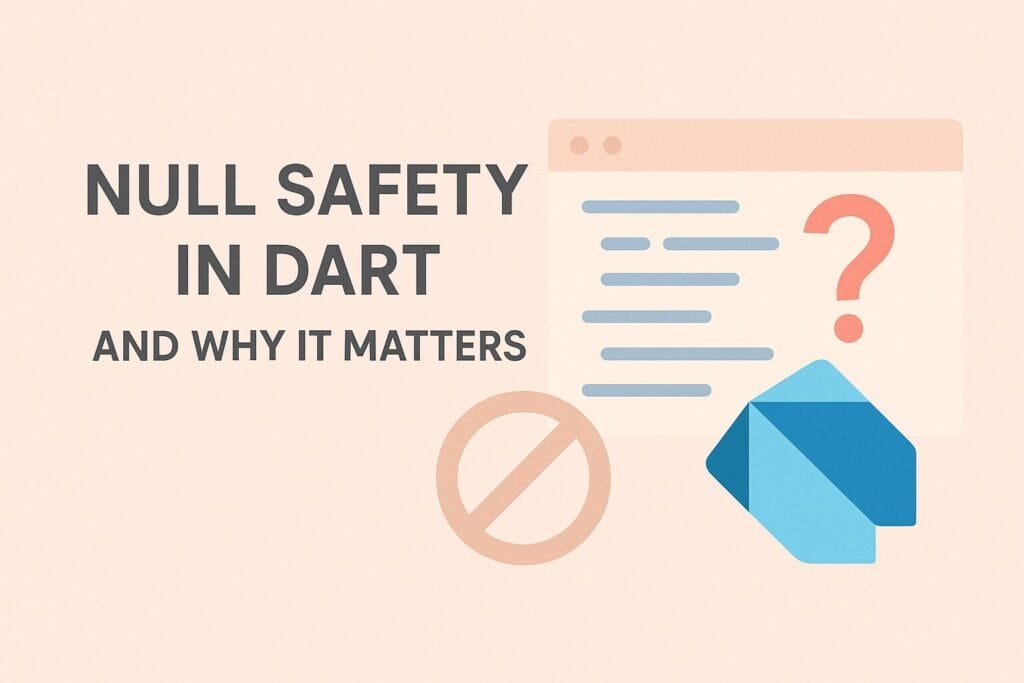Null safety is one of the most significant updates introduced in Dart, and it has completely changed the way developers write secure and robust code. Dart, the programming language behind Flutter, now includes null safety by default starting from version 2.12. But why is it such a big deal, and how does it affect your app development workflow?

What Is Null Safety?
Null safety means that variables cannot contain a null value unless you explicitly allow them to. This eliminates a large class of bugs that come from unintentional null dereferencing. In programming, a null reference error is one of the most common causes of app crashes. By enforcing null safety at the language level, Dart helps catch these issues during development — not at runtime.
Here’s a basic comparison:
| Feature | With Null Safety | Without Null Safety |
|---|---|---|
| Default variable behavior | Non-nullable | Nullable |
| Compile-time null checks | Yes | No |
| Runtime null pointer exceptions | Rare | Common |
| IDE support | Stronger with suggestions | Weaker |
With Dart’s sound null safety, you can:
- Detect null errors at compile time instead of waiting until your app crashes at runtime.
- Improve code readability and maintainability.
- Reduce the need for defensive programming.
- Leverage better IDE support with autocompletion and safer refactoring.
Why Null Safety Matters in Production Code
When building mobile apps — especially with Flutter — null safety contributes directly to stability, performance, and developer productivity. For large codebases, this feature ensures fewer surprises in logic and fewer bugs during QA and release cycles. It also improves onboarding for new developers, as null-safe code is more predictable.
For example:
String? userName; // nullable
String greeting = 'Hello, ${userName ?? 'Guest'}';
This simple null-aware operator (??) ensures a fallback value, preventing runtime crashes.
Migrating to Null Safety
If you’re working on an older Dart project, migrating to null safety is highly recommended. Dart provides migration tools that analyze your code and guide you through the update process safely.
Learn more about the official migration guide:
👉 Null Safety Migration Guide – dart.dev
Final Thoughts
Null safety is more than just a syntactic improvement. It’s a fundamental shift that aligns Dart with modern language standards seen in Kotlin, Swift, and TypeScript. If you’re using Flutter or Dart for any serious development in 2025, null safety should not be optional — it’s essential.

